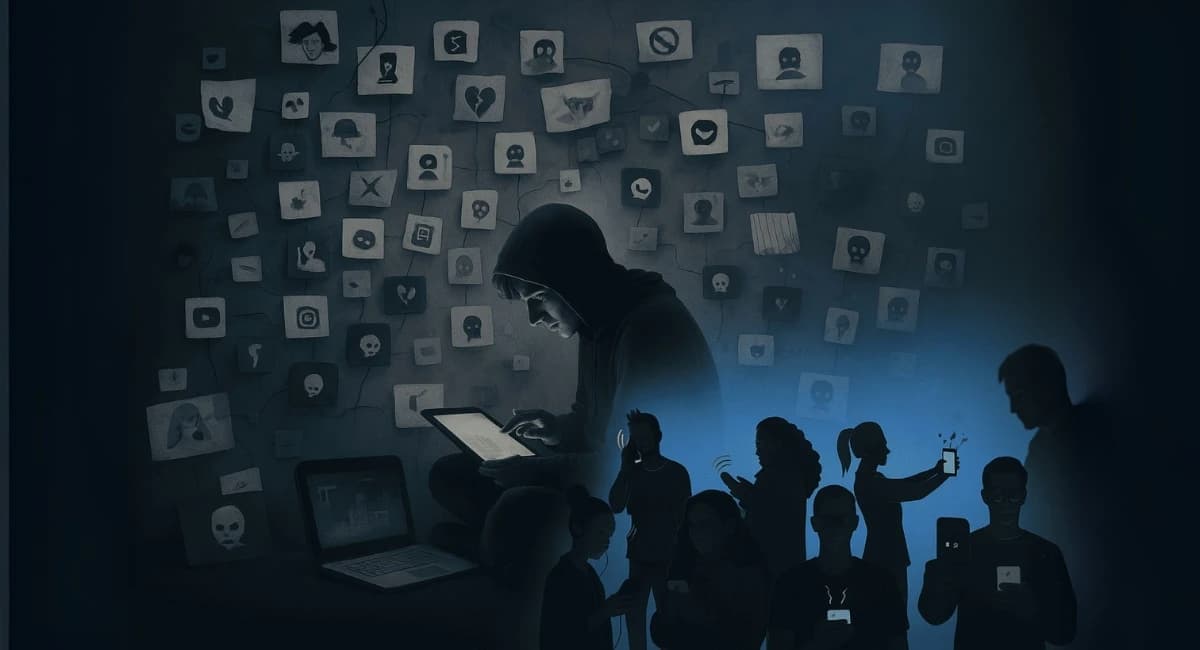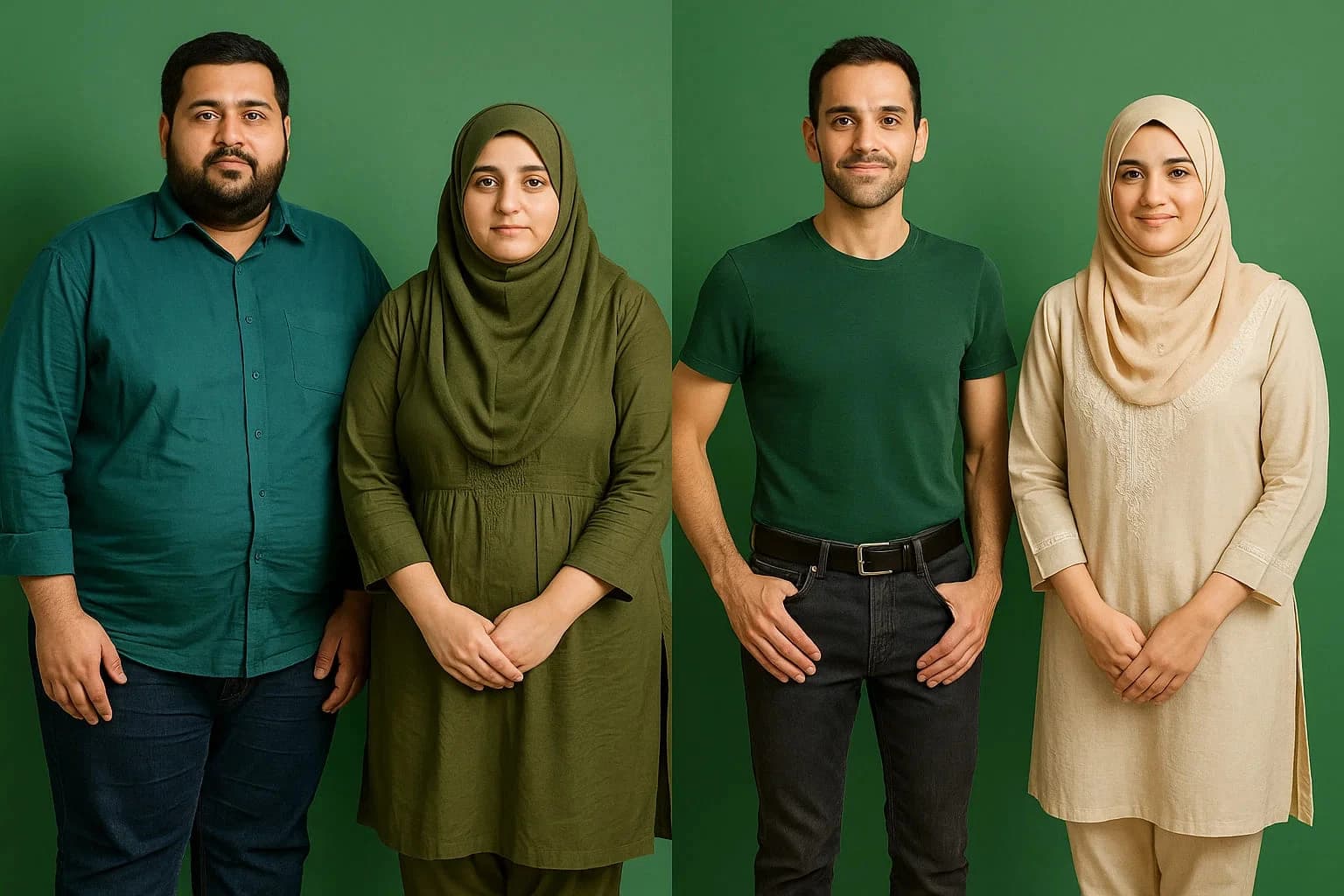
* All product/brand names, logos, and trademarks are property of their respective owners.
Have you ever scrolled through Instagram or TikTok and suddenly felt… drained? Maybe you saw a friend’s vacation photos and started comparing your life. Or you spent hours watching videos, only to realize it’s 2 a.m. and you can’t sleep. That’s the quiet power of social media it connects us, entertains us, but it also affects us in ways we don’t always notice.
Social media is everywhere. Whether it’s checking WhatsApp messages in the morning or posting on Instagram at lunch, it’s part of our daily routine. And while it has many benefits like staying in touch, discovering new trends, and finding inspiration there’s a darker side we often ignore.
Studies have shown a strong link between social media and mental health issues like anxiety, depression, and low self-esteem. People constantly compare themselves to what they see online, forgetting that most of it is filtered, curated, and far from real. Algorithms are designed to keep us engaged even addicted often at the cost of our focus, relationships, and sleep.
In this blog, we’ll explore the dark side of social media how it quietly impacts your mental and emotional well-being, affects different age groups, and even influences how we think and feel about ourselves. But it’s not all bad news. We’ll also look at how to take control of your digital life, set healthy boundaries, and use social media in a way that’s positive and empowering.
Let’s dive in and uncover what really happens behind the screen and how you can protect your peace in a digital world that never sleeps.
Before we explore the negative effects, it’s fair to say that social media isn’t all bad. In fact, it has changed the way we communicate, learn, and even grow as individuals. One of the biggest benefits is connection. You can stay in touch with family and friends, no matter where they are in the world. It’s also a powerful tool for finding support from mental health communities to groups for people with similar interests or challenges.
Social media also spreads awareness. Whether it’s a new idea, a global cause, or a small business promotion, platforms like Instagram, Facebook, and X (Twitter) help information travel fast. Many people have found jobs, clients, or even emotional healing through online communities. When used mindfully, social media can be a force for good. It’s all about how we use it and how much control we give it over our time and emotions.
Now let’s talk about the side of social media that most people don’t post about the one that affects your mood, confidence, sleep, and even your relationships.
Have you ever felt “not good enough” after scrolling online? You're not alone. Social media often shows only the best parts of people’s lives filtered selfies, luxury travel, happy moments. This creates a comparison trap. We start measuring our lives against someone else's highlight reel, which can lead to low self-esteem, anxiety, and even depression.
Studies show that heavy social media users, especially teens and young adults, are more likely to feel lonely and anxious. The pressure to get likes or go viral only adds to the stress.
Another dark side is the rise in cyberbullying. Hurtful comments, hate messages, and online harassment are common, especially among younger users. Victims often suffer in silence, and the emotional damage can be serious.
Unlike bullying in real life, online abuse doesn’t stop when you leave school or work it follows you everywhere, even into your home.
Social media can also harm your physical health. Scrolling late at night affects your sleep cycle, thanks to blue light from screens. Many people report feeling tired, drained, or mentally foggy after hours of non-stop scrolling. Plus, constant use of phones can lead to eye strain, headaches, and poor posture. It’s not just your mind that’s affected your body feels it too.
Social media doesn’t affect everyone in the same way. Age, lifestyle, and emotional health all play a role in how deeply we feel its effects.
For teenagers and young adults, social media is a major part of life. It’s how they connect, express themselves, and stay informed. But this constant connection also brings pressure to look perfect, stay trendy, and always be “online.”
This group is more likely to struggle with FOMO (fear of missing out), low self-esteem, and the stress of online popularity. The need for likes, shares, and validation can turn into an unhealthy obsession that impacts their confidence and mental health.
Adults face a different kind of pressure. Many feel overwhelmed by the non-stop flow of information from emails and work chats to news alerts and social posts. This leads to digital fatigue, reduced focus, and burnout. Professionals also face the “hustle culture” on platforms like LinkedIn, where success stories are shared daily making others feel like they’re falling behind. Even casual scrolling can eat into productivity and quality time with family.
Whether you’re a teen or a working adult, social media can quietly chip away at your mental energy. That’s why understanding these effects is the first step toward healthier use.
Social media platforms aren’t just built for connection they’re built for attention. Every scroll, like, or comment is part of a carefully designed system meant to keep you online longer.
Ever wonder why it’s hard to stop scrolling? That’s because platforms like Instagram and TikTok use algorithms to show you content they know you’ll engage with. These platforms learn what you like then feed you more of it. Each “like” or notification triggers a small dopamine release in your brain the same chemical linked to pleasure and reward. Over time, this creates a dopamine loop, making you crave more likes, comments, and views. It’s like a slot machine in your pocket.
Social media also builds filter bubbles, showing you content that matches your existing beliefs and preferences. This can feel good at first, but it limits your perspective and makes it harder to see the bigger picture. When you're only exposed to one side of an issue or constantly seeing the same type of content you can get stuck in an echo chamber, which affects how you think, feel, and interact with others.
These systems aren’t accidental they’re part of the business model. The more time you spend on the app, the more ads you see and the more money platforms make.
A cross‑sectional study involving professionals aged 24 and up found that those with high social media addiction were much more likely to report stress, anxiety, and depression. These aren’t just feelings they showed up in measurable ways in their work and personal lives.
In Jordan, university students who spent more time on social media, especially consuming content about fitness or appearance, were significantly more likely to be dissatisfied with their bodies. Screen time and content preferences played a big role. Similarly, another study found that ~37% of teens and young adults exposed regularly to “fitspiration” content had lower body esteem vs peers who weren’t exposed.
In a survey of influencers in the US and UK, 78% said they feel burnout from the pressures of content creation and maintaining their image online. Almost one‑third of them reported experiencing this burnout often. It shows that even people who seem to thrive online face real emotional and psychological tolls.
While social media has its dark side, the good news is that you can take control of how it affects you. Here are some simple ways to protect your peace and mental space online.
Start by setting limits on how often you check social apps. Most smartphones have screen time trackers that show you how much time you spend on each platform. Use this data to reduce unnecessary scrolling. Try “phone-free” times, like during meals, an hour before bed, or first thing in the morning. This helps your mind rest and reduces anxiety from constant notifications.
You can also delete apps temporarily or use extensions that block social media for specific hours during the day.
Unfollow accounts that make you feel stressed, insecure, or overwhelmed. Instead, follow creators who share helpful, positive, or inspiring content. Remember: you control what you see. Social media doesn’t have to be toxic but it often becomes that way when we let the algorithm decide everything.
Try replacing some scroll-time with activities that boost your mood reading, walking, listening to music, or just resting your eyes. Small changes make a big difference. By being intentional, you can enjoy the good side of social media without letting it harm your mental health.
Social media is a powerful tool one that connects us, informs us, and entertains us. But like any tool, it can be harmful if used without care. The dark side of social media isn’t always obvious. It shows up in small ways: comparing ourselves to others, losing sleep, feeling anxious, or constantly checking our phones out of habit.
From mental health issues like anxiety and depression to physical exhaustion and burnout, the effects are real. What’s more, these platforms are designed to keep us hooked feeding us content that plays into our emotions and keeps us coming back.
But you don’t have to be controlled by your feed. By setting healthy boundaries, curating who and what you follow, and being more aware of how social media makes you feel, you can protect your peace while staying connected.
The goal isn’t to quit social media completely (unless you want to). It’s about being intentional using these platforms in a way that supports your mental and emotional well-being.
So, the next time you catch yourself scrolling endlessly or feeling off after being online, pause and ask: Is this helping me or hurting me?
Your mind matters. Choose what feeds it wisely.

9 October 2025
No comments yet. Be the first to comment!